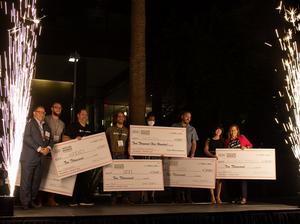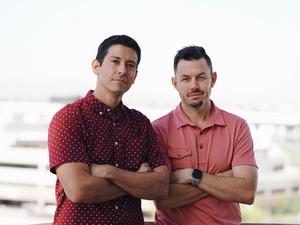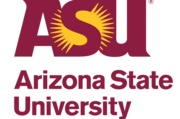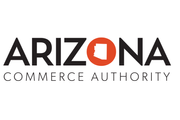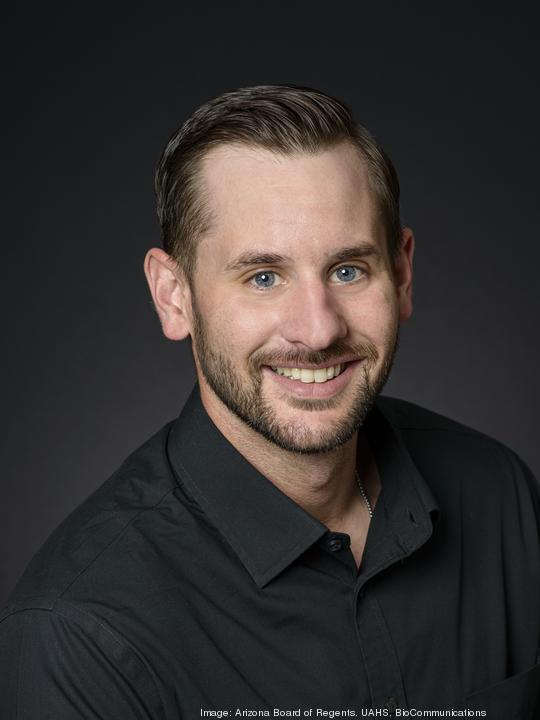
Eric Smith has been involved in Arizona's startup ecosystem for more than a decade, and he said things have changed drastically in recent years.
“I am a primarily failed entrepreneur myself, and I have been involved in the startup ecosystem in Tucson since 2007,” Smith, the executive director of the University of Arizona Center for Innovation, said in an interview. “Over the last decade, we've seen the startup ecosystem, formalize and grow in ways that I couldn't have imagined in 2007.”
Smith’s involvement both as an entrepreneur and as a service provider for startups led him to UACI, where he took over as executive director for the school's incubator network in 2019.
UACI started in 2003, making it one of the oldest startup incubators in the state, and it currently serves 57 companies working in therapeutics, medical devices, software, fintech and other industries.
Of the 57 companies in the program now, 35 of them have some connection to the University of Arizona through an alumni, faculty member or technology transfer from the school. The remaining 22 companies come from connections to other universities, from the federal government, or from entrepreneurs out in the community.
The UACI is open to startups at all stages of development, and the incubator program is tailored for each to meet the needs and existing skills of the individual company. The UACI takes applications on an ongoing basis, so long as it has the resources to serve interested startups.
Smith said that the local startup community has embraced collaboration more completely in the past decade, a sentiment echoed by ecosystem players across the state.
“It takes a village to serve a startup," he said. "And our village here in Tucson has really come together and is working together to make sure that that mantra is true.”
He said that now when a startup succeeds, be it in Tucson or another part of Arizona, there's a greater recognition that the success is thanks to the combined efforts of people inside and outside of the company working together.
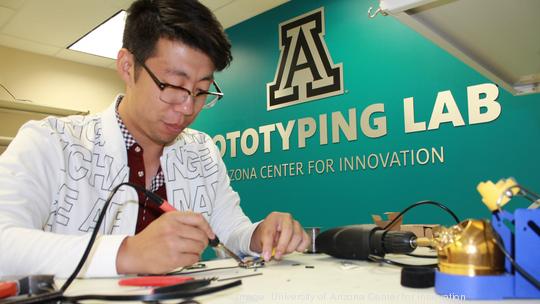
What is the UACI and what is your role there? The University of Arizona Center for Innovation is the University of Arizona's startup incubator network. We serve scalable science and technology ventures and these can come from universities through the technology transfer process, or from alumni. They can also come from the community, so they don't have any connection to a university.
But we serve startups that come from regions outside of Arizona too, and in some cases from outside of the United States. We put them through a program that's a continuum of education and activities, typically for two years. We have a full staff of mentors, subject matter experts and programmatic people who helped to support these companies along their journey.
We also have physical space: 18,000 square feet here at the University of Arizona Tech Park, where we have wet labs and dry labs and other resources for companies. We have a biotech incubator solely focused on biotech companies up in Oro Valley. And then we're currently building another location at our second Tech Park, called The Tech Park at The Bridges where the first 120,000-square-foot building, The Refinery, is going up.
My role is to help lead those efforts to set the vision for the incubator to build a team of people who are much smarter than me who really serve these companies, and to oversee our expansion to serve other regions in the Southwest.
How can startups get involved with UACI? Anybody can apply. We do have an admissions process, we're looking for startups that are working on something novel in the science or technology space, that have a motivated team. Through our admissions process, we're not evaluating the validity of the startup company, but we're evaluating their ability to fit with an incubator to receive coaching, the motivation to persevere through some of the undoubtable obstacles that they will face as a startup company.
Even prior to the pandemic, we set up our programming to be executed virtually, because we now have some federal partnerships that bring startups to us from regions all across the United States. We got really good at that during the pandemic, but all of the programming connections, advice, everything, workshops, everything that we provide, is done in a virtual format. So it allows us to represent southern Arizona, and in some cases, Arizona as a whole, but serve innovation outside of the region.
What's a common issue you see with startups? Oftentimes, startup companies and the entrepreneurs behind them are so steeped in the technology, that they often forget about everything else around that technology that makes that technology into the core of a business. It's really our job to help wrap the startup around the technology, that's often what it starts with. They’ll have a great technology that has some implication for some customer segment, they're solving some problem for some customer group. So for us, it's about ensuring that they consider the things around the technology. And more importantly, that they consider not just with the activities they have to take on in the next month or two, but the processes that they have to set up in the next six months or a year.
What makes a startup stand out to you? It is all about the team. When you ask investors, they're going to tell you, it's all about the team. If you ask folks who serve startup companies, most of us will tell you, it's all about the team.
When we have a truly motivated team of entrepreneurs that are willing to give this a go and are willing to take advantage of the resources that are around them, they have a higher likelihood of succeeding.
In a lot of cases, investors, for example, will invest in startups that have an OK technology, and a rock star team, compared to those that might have an incredible technology, but not necessarily the team to execute it. So for us, the people we work with, the entrepreneurs, may have incredible technologies, but if we don't have really good people to work with, and to put out there, then it's really hard to help that startup succeed.
This interview has been edited for clarity and brevity.
The Innovators is an ongoing profile series from AZ Inno that explores the interconnected people, places, organizations and companies that make up Arizona’s startup community. Have a story you think we should know about? Email reporter Andy Blye at ablye@bizjournals.com.

